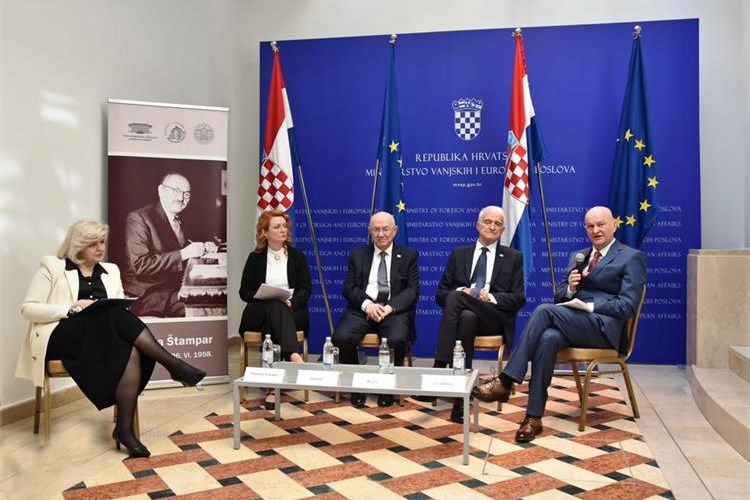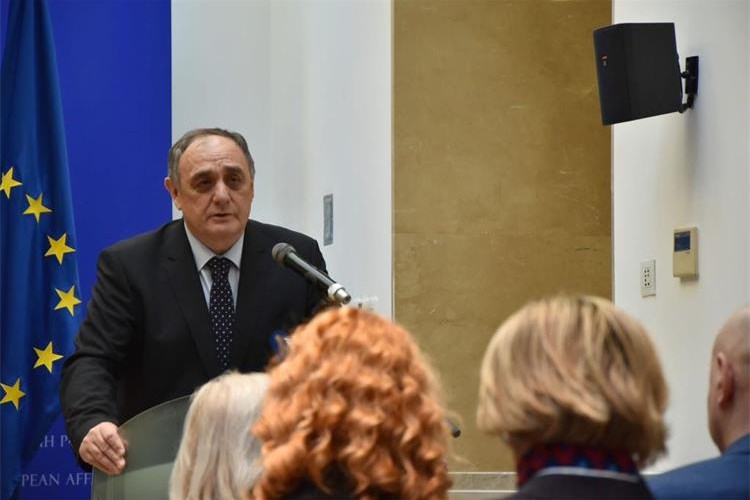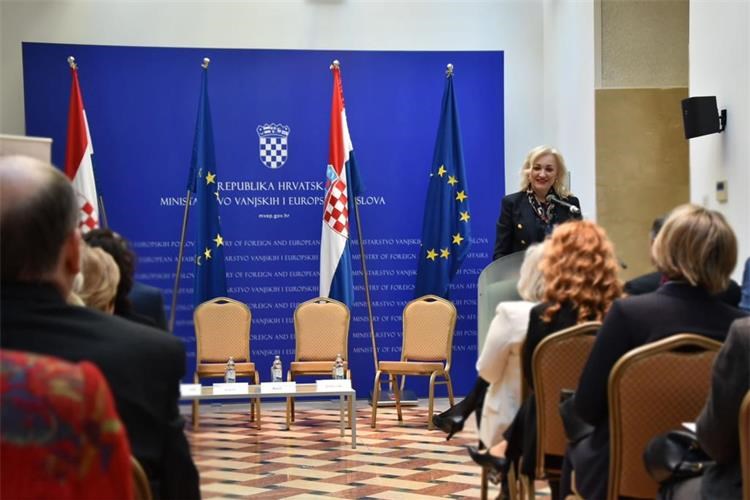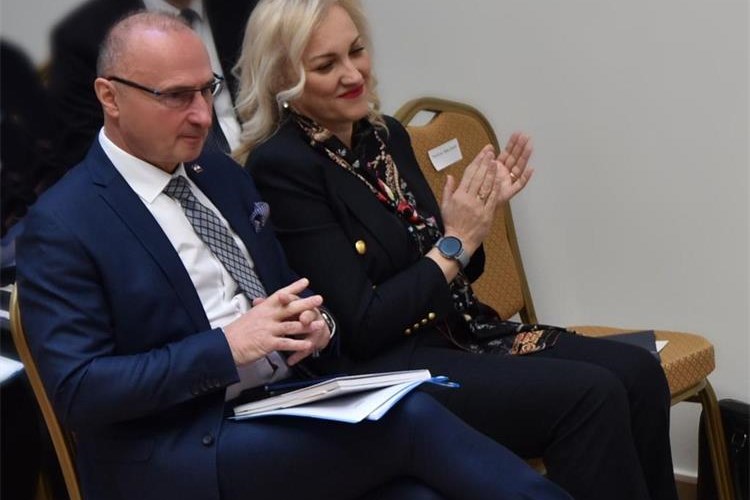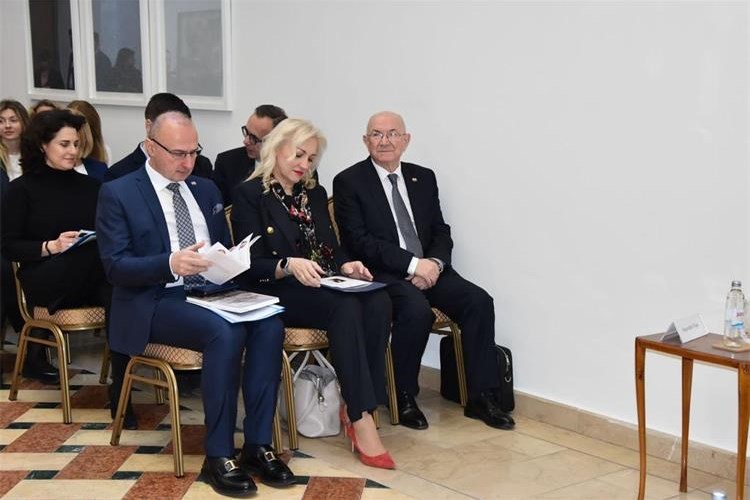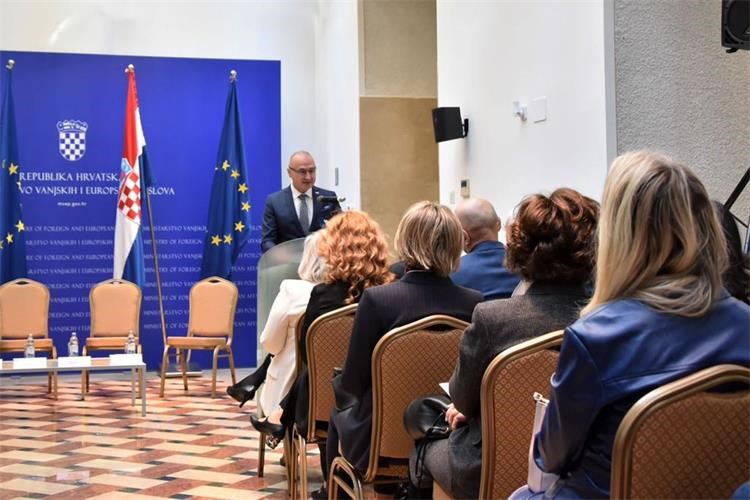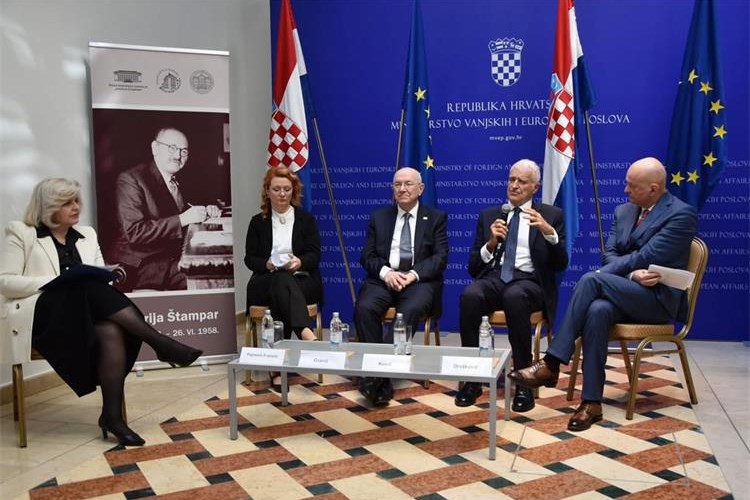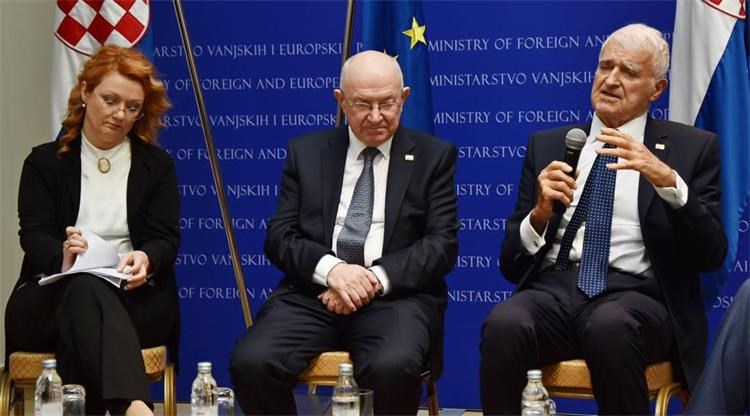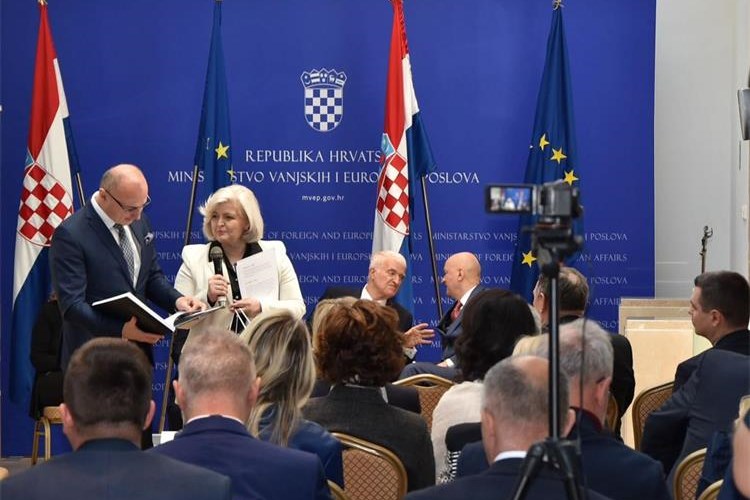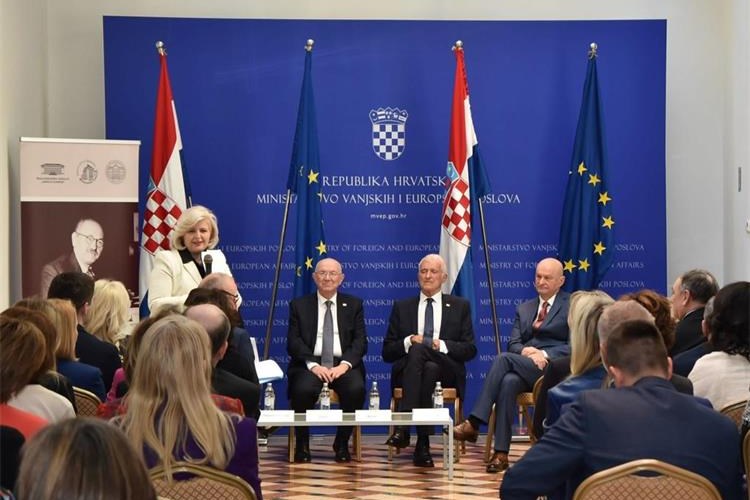- Published: 06.04.2023.
Expert meeting on WHO’s 75th anniversary
The anniversary was an opportunity to commemorate the Croatian visionary Andrija Štampar, who left a lasting mark in the field of public health not just in Croatia, but worldwide. Andrija Štampar was one of the founders of the WHO and the modern global public health.
Keynote addresses were delivered by Minister of Foreign and European Affairs Gordan Grlić Radman, State Secretary at the Health Ministry Marija Bubaš, Zagreb Faculty of Medicine Dean Slavko Orešković, and Principal of the Andrija Štampar School of Public Health Mirjana Kujundžić Tiljak.
A panel discussion was held with academic Zvonko Kusić, Head of Andrija Štampar Department of Medical Sociology and Health Economics Stjepan Orešković, Iva Pejnović Franelić of the Zagreb WHO Office, and Special Advisor to the President on Social Affairs Mate Granić.
“Thanks to the work of the WHO’s first president Andrija Štampar, Croatia has for a century been setting the standards and launching global initiatives on health. Štampar saw the WHO in a leading role, not just in promoting health, but also in promoting peace and cooperation among countries and nations,” underscored Grlić Radman in his address.
The minister said Croatia fully supported the central role of the WHO in the global fight against COVID-19 and its position at the centre of the new global health architecture. He added that in the UN-backed meetings and forums, Croatia had continually been stressing the importance of maintaining the WHO’s central role in coordinating responses to global health challenges.
“Croatia remains committed to the advancement of global health security, which includes strengthening the WHO. A successful global health diplomacy is key for providing better healthcare as well as for improving global solidarity and fairness,” the minister concluded.



